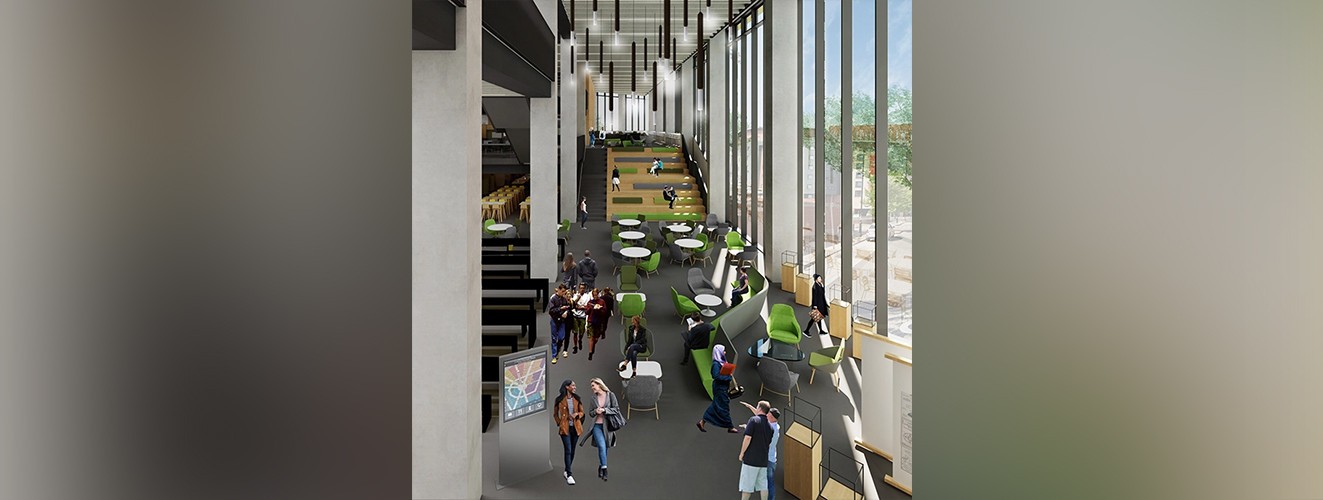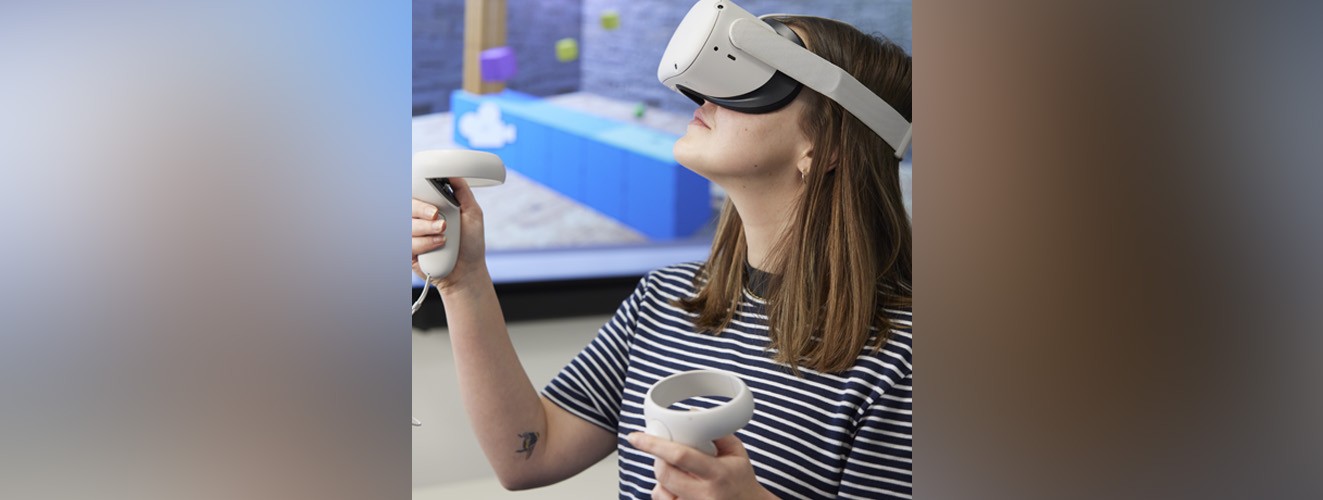Education Innovation and Initiatives
About the Education Innovation and Initiatives unit (I&I)
Education Innovation and Initiatives supports continual improvement to our educational offering, our students’ experience and outcomes. It supports the University in operationalising its Education Strategy, and with accounting for progress through internal processes and external exercises such as the Teaching Excellence Framework submission.
The I&I unit operate through an Education Innovation Strategy to support projects and transformations throughout the University, and by maintaining a small portfolio of managed projects.
Key activities and events
-
The education innovation strategy
Education innovation strategy
One of the core functions of the I&I unit is the development, maintenance and delivery of an institutional approach to innovation. It does this through its Education Innovation Strategy.Communities of practice
The I&I Unit coordinates a portfolio of institutional Communities of Practice that support an institutional conversation about critical themes in teaching, learning, curriculum design and student support.Evaluation framework
The I&I Unit works with Strategic Planning to maintain the vision and operation of an institutional approach to evaluation and monitoring of progress towards our Education KPIs.Innovation scholarships
Our innovation scholarships give academic and education-facing professional services staff secondments into LEED.
We offer full scholarships to colleagues leading a significant educational strategy and policy development and implementation at institutional or faculty level. Lasting between six and 18 months, these secondments usually have a 20% or 40% workload allocation.
Our associate scholarships target smaller scale teaching and learning projects or programme-level initiatives. They have a 10% or 15% workload allocation, and are usually completed within a semester.
-
The Rise Programme
Rise is a sector-leading approach to extending our students’ learning beyond their courses.
Students can earn Rise points for anything outside of their degree – including placements, skills development, projects, short courses and self-study pathways.
These points are recognised on their degree transcripts. Where eligible, this can lead to additional credits and improve their degree classification.
The benefits of Rise go further than academic recognition. It provides space for students to explore opportunities beyond their courses, and for staff to rapidly prototype and test new approaches for students before integrating them back into the formal curriculum.
-
Lifelong Loan Entitlement Short Course Pilot
Our short courses have been developed in partnership with the Greater Manchester Combined Authority.
They cover three themes:
- education.
- health and social care.
- digital innovation.
Students can get funding to take the courses, in any order and at their own speed. They can also combine units towards an award equivalent to the first year of an undergraduate degree.
We are one of 20 institutions selected by the Office for Students and Department for Education to pilot this approach. A roll-out across higher education is expected in 2025.
What we do
-
35k students engaged with extended curriculum learning
Rise engages students in educational activities and experiences that go beyond the traditional classroom curriculum, providing students with opportunities to explore additional subjects, skills, and interests.
Learn more by visiting the Rise website.
-
3.5 million hours of student effort
Students who invest extra effort in extracurricular activities at university not only enhance their academic experience but also develop essential skills, expand their networks, and become more well-rounded individuals.
Encourage your students to engage with extracurricular activities via the Rise website.
-
6750 digital micro-credentials awarded
A digital micro-credential provides a valuable incentive for students in higher education, as it allows them to gain and showcase specialised skills and knowledge, enhancing their qualifications and employability in a competitive job market.
Learn more about Rise badges via the Rise website.
-
10 education innovation scholars
The Education Innovation Scholarship Scheme enables staff on the EPC pathway, and those in student-facing professional services roles, to lead our institutional approach to teaching, learning and student support.
Full Scholars lead University or Faculty/Directorate initiatives. Staff are seconded to these roles each year, through a central call for university scholars and through faculty processes.
Visit the the education innovation scholars intranet page and learn more about how you can get involved.
-
45 associate scholars
The Education Innovation Scholarship Scheme enables staff on the EPC pathway, and those in student-facing professional services roles, to lead our institutional approach to teaching, learning and student support.
Associate Scholars lead smaller projects, for instance leading departmental innovation or implementing enhancement activities targeting specific groups of students.
Visit the the education innovation scholars intranet page and learn more about how you can get involved.
-
6 strategic communities of practice
The Education Innovation and Initiatives unit coordinates a portfolio of institutional communities of practice. These support an institutional conversation about critical themes in teaching, learning, curriculum design and student support.
Visit the communities of practice intranet page for more details.
Staff profiles
Education Innovation and Initiatives
-
Matthew Carney
Experiential Learning Tutor
-
Dr Catherine Elkin
Experiential Learning Tutor
-
Vick Fahie
Operations Officer
-
C-J Foster
Experiential Learning Tutor
-
Beth Fulham
Rise Comms and Copywriter Assistant
-
Dr John Lean PGCLTHE SFHEA
Senior Lecturer
-
Sarah Maine
Operations Manager
-
Professor Mark Peace BA, Msc, PGCE, PhD, FRSA
Professor of Innovation in Education
-
Elle Simms
Experiential Learning Tutor
Teaching Excellence Framework (TEF) case studies
In this section, find examples of colleagues who have made major contributions to the TEF 2023 submission.

An Ofsted ‘outstanding’ provider of degree apprenticeships
Manchester Met is one of the UK’s largest providers of degree apprenticeships. Over the past three years, the number of undergraduate degree apprenticeship students grew to reach 1,540 in 2021/22, constituting 5.4% of our undergraduate population[1]. We are the only university to have twice been rated overall Outstanding by Ofsted as a provider of apprenticeships[4], including under the new Education Inspection Framework (achieved for all six categories) in November 2022. Between 2018 and 2022, we have also ranked the best university provider for degree apprenticeships four times by our apprentices themselves in the Rate My Apprenticeship Awards[5]. These strengths carry through to our TEF data as the student experience indicators are materially above benchmark for all themes, indicating outstanding quality. Based on this evidence, we can justifiably claim to be the UK’s leading provider of degree apprenticeships, an indication of our excellence in vocational education[4].

Oubliette - award winning student-staff co-production
Our flexibility to enable staff to innovate has generated outstanding outcomes. In one example, an academic from Health & Education invited students across the University to respond to research on maths anxiety. Their response was to propose a Maths Escape Room (Oubliette) to connect people with their everyday use of mathematical reasoning. Drawing on interdisciplinary skill from Business and Events Management, Design, Engineering and Education – and technical services teams – the students acquired funding and built their installation. It ran over six-weeks, engaging over 3,000 young people. Students noted how delivering an ambitious real-world impact transformed their self-concept, confidence, and ability to access career aspirations in education. The initiative won the 2019 Guardian Universities Award for Teaching Excellence[40].

Dalton building – co-creating active learning facilities
Our £130m investment in a new home for Science & Engineering is driving forward active and collaborative learning. A strategic project to co-construct its educational vision with students and staff produced exciting designs with strong end-user insight, including a new 200-student ‘Super Lab’. Rather than waiting for the build to complete, we found ways to implement its vision early and bring benefit to existing students. Faculty-wide themed projects have been supported by a new community-supervision approach, and we have extended technician led support for students. The project has now delivered its first build, and students from the Institute of Sport have benefitted from outstanding dynamic active learning spaces from January 2022. Compared to previous cohorts, Level 4 students averaged 4.2pp higher unit marks (n=107, 2021/22), with a 3.6pp increase in continuation from level 4 to level 5 (n=84, 2021/22)[19]

‘Birley Place’ - excellence in data-driven simulated learning
We have invested in the in-house development of digital solutions which deliver a more responsive and student-centred learning experience. Our ‘Birley Place’ platform is a virtual simulated community, modelled on our city region using live population, health and lifestyle data which are representative of the homes, businesses and services of our communities. The platform has been used to facilitate a range of learning activities within Health & Social Care courses, offering opportunities for student-led enquiry and enabling large interprofessional simulations. Birley Place has enabled us to deliver simulated learning at scale and is now used by 1,291 students who engage with 313 simulated scenarios, 295 simulated places and 301 simulated person profiles.

Art School Live – interdisciplinary technician-led learning
We encourage all our student-facing staff to innovate, and this has enabled exciting new initiatives which develop skills and enhance outcomes. Art School Live is a technician-led project involving a two-day, live-streamed music festival. Students from different disciplines are able to gain practical and technical skills and contextualise their subject learning. Those taking part include students from Media, Events and Business Management, Marketing and Social Media, and Journalism, as well as many others who participate out of pure interest. Our qualitative evaluation evidences that these experiences are more scalable than placements, yet the transformations they deliver can be just as authentic and impactful[38]. The project has also catalysed a new University-wide approach to Student Learning Companies – novel, in-house social enterprises, which generate profit and pay for students, against a second bottom-line of educational gain.
Find us
Education Innovation and Initiatives office
Manchester Metropolitan University
All Saints Building, 5th Floor, room AS407
All Saints
Manchester
M15 6BH
United Kingdom
Building Address
All Saints,
All Saints Building, 4th Floor, room AS407,
Manchester,
M15 6BH
Please book an appointment via email before visiting the office to ensure that someone is available to see you.









